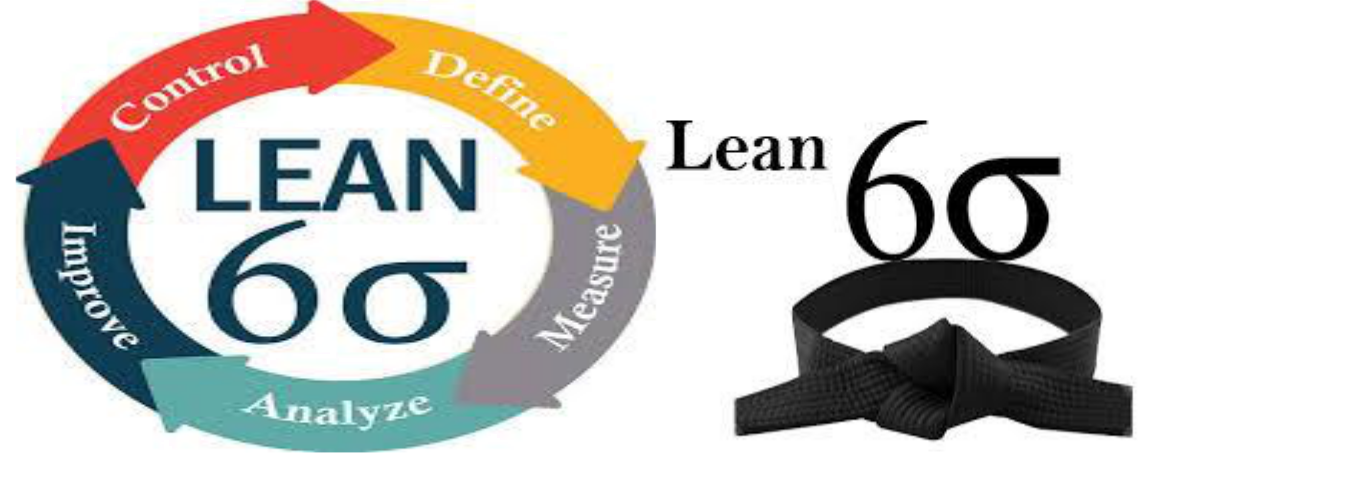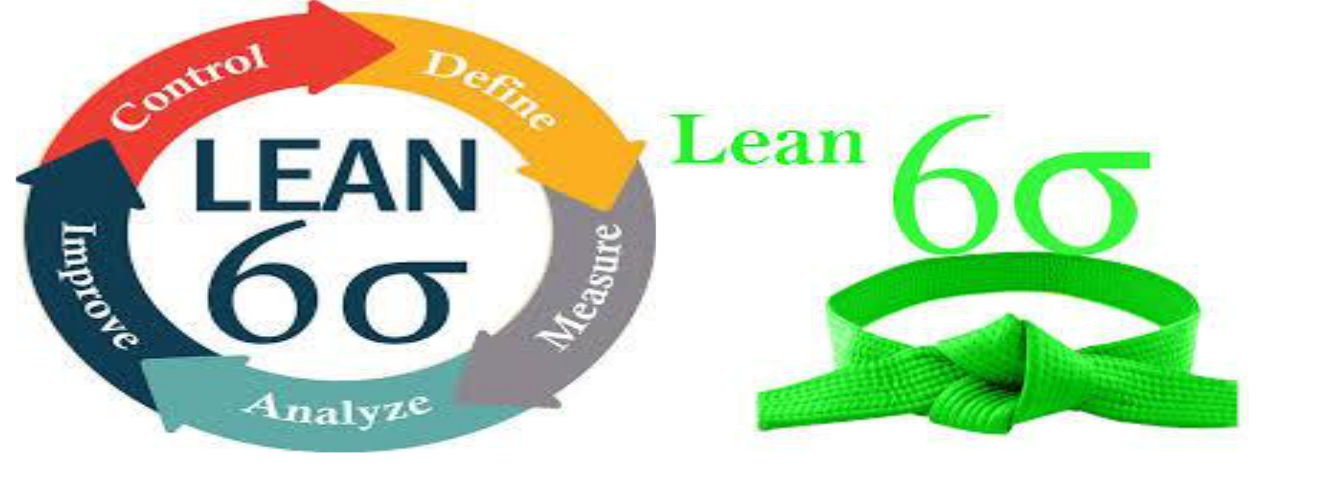ISO 9001 Quality Foundation Certification
Lean Six Sigma Black Belt Overview
Lean Six Sigma Green Belt Overview
Lean Six Sigma Yellow Belt Overview
ISO 9001 Quality Foundation Certification

|
|
|
|
ISO 9001 Quality |
In today’s market, corporates have to constantly prove their commitment to quality by |
|
Foundation |
providing products that meet customer demands and satisfy statutory and regulatory |
|
Certification |
requirements. Only by including processes that support continuous improvement and |
|
|
assuring conformity can organizations rise above competition and ensure business |
|
|
continuity. The ISO 9001 specifies the requirements for a quality management system, and |
|
|
professionals with the knowledge of these standards are able to bring about internal |
|
|
management and operational processes in the organization. |
|
|
Knowledge Hut helps you prepare for the ISO 9001 Quality Management Systems |
|
|
certification provided by PEOPLECERT where candidates will gain the knowledge required |
|
|
to understand the content and requirements of the international standard ISO/IEC 9001: |
|
|
Quality Management Systems. With comprehensive courseware, in‐depth exercises, and |
|
|
training from experienced professionals, participants can aim for a first time clearance of |
|
|
the examination and apply the ISO 9001 standard to achieve strategic goals on a daily basis |
|
|
and comply with global best practices for Quality Management. |
|
|
What you will learn: |
As this is the Foundation level course, candidates will be introduced to the principles and core elements of the ISO/IEC 9001 standard for Quality Management Systems, and more specifically:
- ISO/IEC 9001:2008: the standard which defines the requirements for a Quality Management System.
- ISO/IEC 9000:2008: which deals with the fundamentals of quality management systems.
Holders of PEOPLECERT’s ISO 9001: Quality Management Systems Foundation Certification will be able to demonstrate their knowledge, ability, competence and understanding in:
- Definitions and principles of quality management in accordance with ISO/IEC 9001.
- Objectives and requirements in each section of the specification.
- Scope, aims and use of the ISO/IEC 9001 Specification and Code of Practice.
- Processes and objectives of ISO/IEC 9001 and Quality management (QM).
- Fundamental requirements for a quality management system (QMS). Eligibility and scoping statement requirements.
- Requirements of the quality management system and the Plan, Do, Check, Act cycle.
- How assessments, reviews and internal audits of quality Management systems against the requirements of the standard are used.
- Application of the requirements in an organization
Who can attend?
|
Validation? |
Three years |
|
|
Certificate & ID |
Certificate & ID |
|
|
Exam |
Multi-choice exam |
|
|
fee |
550US$ + VAT |
|
|
More details |
|
|
|
|
|
|

|
|
|
|
|
|
|
|
A successful company is one that has the ability to generate superior products in a |
|
|
more efficient manner, constantly strives to meet customer service goals, and has |
|
Certified Quality |
processes to reduce waste and minimize losses. In order to accomplish these, |
|
Manager |
organizations hire professionals who are quality management experts. These CMQs |
|
|
(Certified Manager of Quality) have the expertise and training to bring about process |
|
|
improvement initiatives everywhere, from small businesses to multinational |
|
|
corporations and are able to lead teams to establish and maintain customer |
|
|
relationships, support strategic planning and help develop measurement systems to |
|
|
determine organizational improvement. |
|
|
KnowledgeHut’s course on Certified Manager of Quality/Operational Excellence is a |
|
|
well-rounded course that will help participants prepare for the CMQ/OE credential |
|
|
and also learn the tools of the trade to successfully implement quality procedures |
|
|
for organizational benefits. Comprehensible courseware, expert guidance and |
|
|
practical, hands-on exercises will help participants aim for a first time pass of the |
|
|
exam and also face on-the-job challenges with confidence. |
|
|
What you will learn: |
|
|
· Learn and implement the concepts outlined in the Body of knowledge (BOK) |
|
|
· Learn to apply the standards and procedures that will help improve |
|
|
organizational processes for better quality outcomes |
|
|
· Motivate and lead teams to ensure satisfactory customer/supplier relations, |
|
|
strategic planning and organizational improvements |
|
|
· Help team members take the right quality initiatives |
|
|
· Learn to analyse financial situations, evaluate and pre-empt risks, and |
|
|
successfully bring about change management |
|
|
|
· Learn to apply quality management processes in planning and executing |
|
|
|
projects |
|
|
|
· Learn to use various metrics, tools and techniques to measure quality |
|
|
Who can attend? |
|
|
|
Validation? |
Three years |
|
|
Certificate & ID |
Certificate & ID |
|
|
Exam |
Multi-choice exam |
|
|
fee |
750US$ + VAT |
|
|
More details |
|
|
|
|
|
|
Lean Six Sigma Black Belt Overview

Lean Six Sigma Black Lean Six Sigma Black Belts are highly trained professionals in Quality improvement
Belt Overview methodology, who are able to apply Six Sigma principles to business processes and lead a quality improvement initiative. They are well versed in the Six Sigma Methodology and can skilfully lead and assume full responsibility for large scale quality improvement projects. They are competent in the use of six Sigma tools and techniques and standard principles. A Six Sigma Black Belt has a thorough grounding in all aspects of the phases of D-M-A-I-C (Define, Measure, Analyze, Measure, Control), and can identify non-value-added elements and activities.
Six Sigma certified professionals work on continual quality improvement by analyzing and solving quality problems and creating a high-performance organization. The Lean Six Sigma Black Belt is the fifth level of certification, after the Green Belt. Certified Black Belts should be able to assume team leadership with confidence, and allocate responsibilities and team member roles.
This course will give you a thorough and detailed understanding of Lean Six Sigma and its focus on eliminating defects through process improvement and variation reduction by applying Six Sigma improvement projects. The course content efficiently covers all of the recognized Lean Six Sigma Black Belt topics in a comprehensive manner. Our intensive course is designed to help candidates navigate the Lean Six Sigma Black Belt Certification Exam syllabus, and to prepare them for the Black Belt exams.
What you will learn:
- The principles and philosophy behind the Six Sigma method
- To lead quality initiatives, and oversee the work of Green and Yellow Belts
- Design and implement Six Sigma projects
- The DMAIC process
- How to gather data, and participate in problem solving
- To identify and control wasteful processes
- To evaluate daily activities, to reduce cycle times, and improve quality
|
|
· Root cause analysis and basic statistical analyses on process measurements |
|
|
|
· To identify and control wasteful processes |
|
|
|
· To increase profitability using Six Sigma methodology |
|
|
|
· Prepare for the IASSC Lean Six Sigma Green Belt certification exam |
|
|
Who can attend? |
|
|
|
Validation? |
Three years |
|
|
Certificate & ID |
Certificate & ID |
|
|
Exam |
Multi-choice exam |
|
|
fee |
750US$ + VAT |
|
|
More details |
|
|
|
|
|
|
Lean Six Sigma Green Belt Overview

Lean Six Sigma Green Lean Six Sigma Green Belts are paraprofessionals who have been trained on the
Belt Overview Lean Six Sigma improvement methodology, and who lead or support improvement initiatives within the organization. They work on a data-driven approach to eliminate defects and improve processes in the organisation. The Lean Six Sigma Green Belt Certificate Program focuses on creating a mindset and culture shift that eliminates wastage of time and resources, and replaces the methods used in traditional contexts with a set of tools that produce near-perfect results.
These certified professionals work to support, or under the supervision of a Six Sigma Black Belt. The Six Sigma Green Belt certification will give you the credibility to bring about changes that will help your organization realize its vision and help you realize your potential. As a Six Sigma professional, you will work on continual quality improvement by analyzing and solving quality problems, and strive to create a high performance organization.
KnowledgeHut’s course will give you a thorough understanding of Lean Six Sigma and its focus on eliminating defects through process improvement and variation reduction. This course builds upon and adds to the topics covered in the Lean Six Sigma Yellow Belt course. The course content efficiently covers all of the recognized Lean Six Sigma Green Belt topics in a comprehensive manner and helps you ace the Certification Exam at your first attempt.
What you will learn:
- The principles and philosophy behind the Lean Six Sigma method
- To gather data, and participate in problem solving
- To apply statistical methods to improve business processes
- Design and implement Six Sigma projects
- The DMAIC process
- Root cause analysis and basic statistical analyses on process measurements
|
|
· To identify and control wasteful processes |
|
|
|
· To evaluate daily activities, to reduce cycle times, and improve quality |
|
|
|
· To evaluate problems, statistically and quantitatively |
|
|
|
· Support and assist Black Belts |
|
|
|
· Increase profitability using Lean Six Sigma methodology |
|
|
|
· Prepare for the IASSC Lean Six Sigma Green Belt certification exam |
|
|
Who can attend? |
|
|
|
Validation? |
Three years |
|
|
Certificate & ID |
Certificate & ID |
|
|
Exam |
Multi-choice exam |
|
|
fee |
750US$ + VAT |
|
|
More details |
|
|
|
|
|
|
Lean Six Sigma Yellow Belt Overview

Lean Six Sigma Yellow Lean Six Sigma is an improvement methodology that effectively combines the
Belt Overview principles and practices of Lean and Six Sigma. Six Sigma methodology identifies and removes the basic causes of error in any business process. It aims at minimizing variability and eliminating marginal methods that are used in traditional contexts. Lean is a collection of tools and techniques that reduce wastage and minimise the time required to complete a production or service cycle. By combining the two ideas, organisations can improve quality, cut costs and increase speed dramatically.
Certified Lean Six Sigma Yellow Belts can work as a team member in a Six Sigma Project Team. They are responsible for monitoring and evaluating work progress and process enhancements. They work to support, or under the supervision of a Six Sigma Green Belt or Black Belt. Six Sigma certified professionals work on continual quality improvement by analyzing and solving quality problems, and creating a high performance organization.
This course will give you a basic understanding of Lean Six Sigma and its focus on eliminating defects through process improvement and variation reduction. The course content efficiently covers all of the recognized Lean Six Sigma Yellow Belt topics in a comprehensive manner. Thousands of companies across the world have discovered the far-reaching benefits of this methodology; with this certification you can gain valuable insights into the techniques, metrics and basic improvement methodologies.
What you will learn:
- The principles and philosophy behind the Six Sigma method
- How to gather data, and participate in problem solving
- An understanding of processes, in order to provide assistance to achieve organizational objectives
- To start the first statistical process improvement initiative
- To identify and control wasteful processes
|
|
|
|||
|
|
|
|
|
|
|
|
· To evaluate daily activities, to reduce cycle times, and improve quality |
|||
|
|
· Evaluate problems, statistically and quantitatively |
|||
|
|
· To give data to, and assist Green Belts and Black Belts |
|||
|
|
· To increase profitability using Six Sigma methodology |
|||
|
Who can attend? |
|
|
|
|
|
Validation? |
Three years |
|||
|
Certificate & ID |
Certificate & ID |
|||
|
Exam |
Multi-choice exam |
|||
|
fee |
750US$ + VAT |
|||
|
More details |
|
|||
|
|
|
|
|
|

